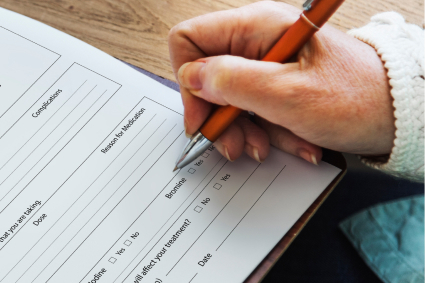Knowing that PTSD is likely to happen to everyone at some point in their lives led to the exploration of different methods for treating it, like using ecstasy for PTSD. PTSD, or post-traumatic stress disorder, affects everyone. Still, according to the US Department of Veteran Affairs, in any given year, around 5% of adults in the US have PTSD. Veterans are more likely to have PTSD than civilians, with PTSD being more frequent among female veterans (13%) compared to male veterans (6%).
Ecstasy, also popular as MDMA or Molly, a psychoactive substance known as a recreational drug, is now being endorsed as a potentially most effective treatment for PTSD in military veterans. What seemed like an experiment led to the discovery of a positive connection between ecstasy and PTSD, and now this treatment is finding growing support in the scientific community.
Although still being investigated, ecstasy for PTSD, or MDMA-assisted psychotherapy, seems like a promising treatment for veterans in New Jersey struggling with PTSD.
Skip to:

Understanding PTSD in Veterans
Whether a person was a victim of the traumatic event, saw it happen, or even heard about it from others, PTSD is a disorder that can result from it. It´s diagnosed if certain symptoms have been present for long enough. PTSD symptoms belong to four groups:
- Intrusiveness: intrusive memories of past events, nightmares, and flashbacks; feeling like the event is happening again
- Avoidance: extreme avoidance of things that trigger memory of the traumatic event, both objects and people; losing interest in everyday activities
- Negative changes in thoughts and mood: persistent feelings of guilt or shame, negative beliefs about yourself, and inability to experience positive emotions
- Heightened reactivity: being on guard all the time, reckless behavior, hypervigilance
An especially vulnerable group when it comes to PTSD, and therefore those that can benefit the most from ecstasy for PTSD, are military veterans. Repeated experiences of exposure to similar disturbing events make them more likely to develop severe or chronic PTSD. Research shows that those who get deployed are three times more likely to develop PTSD compared to those who do not get deployed.
Factors affecting the risk for PTSD and other mental problems are related to the military specialty, politics around the war, the type of enemy faced, and where the war is being fought. An additional cause of PTSD can be military sexual trauma—sexual harassment or assault—that can happen during war, training, or even peacetime.
Get Help. Get Better. Get Your Life Back.
Searching for Accredited Drug & Alcohol Rehab Centers Near You? Or Mental Health Support?
Even if you have failed previously, relapsed, or are in a difficult crisis, we stand ready to support you. Our trusted behavioral health specialists will not give up on you. Call us when you feel ready or want someone to speak to about therapy alternatives to change your life. Even if we cannot assist you, we will lead you wherever you can get support. There is no obligation. Call our hotline today.
FREE Addiction Hotline – Call 24/7Traditional treatments, such as psychotherapy and medication, have limited success in treating PTSD in veterans, and they take a long time. According to several studies, 40–60% of those with PTSD do not respond adequately to traditional treatment. Among the new approaches, the one exploring the connection between PTSD and ecstasy gained much attention as it showed the potential to overcome the limitations of conventional therapy.
The psychoactive properties of ecstasy allow access to triggering memories without feeling distress. Knowing what drugs are in ecstasy can help you understand the potential of ecstasy for PTSD.

MDMA-Assisted Psychotherapy: An Overview
MDMA-assisted psychotherapy has been tested for a variety of disorders. There were promising results when it came to treating social anxiety in autistic adults and eating disorders, and there are ongoing studies about attempting to treat alcoholism.
Still, the relationship between PTSD and ecstasy got most of the attention, as it early on demonstrated its efficiency for treating this disorder with minimal disadvantages. MDMA-assisted therapy combined with psychotherapy also worked in cases of comorbidity with alcoholism, which is especially important in knowing the link between veteran PTSD and substance abuse.
The way ecstasy for PTSD works is that it allows probing underlying trauma without causing emotional distress. By reducing the activation of certain brain regions related to the expression of fear and anxiety, ecstasy can allow the re-processing of traumatic memories while containing negative emotions. Additionally, it increases certain neurohormones, like dopamine, serotonin, norepinephrine, and oxytocin, which contribute to the reduction of PTSD symptoms, especially those related to negative emotions.

Get Your Life Back
Find Hope & Recovery. Get Safe Comfortable Detox, Addiction Rehab & Mental Health Dual Diagnosis High-Quality Care at the We Level Up Treatment Centers Network.
Hotline (877) 378-4154The Potential of MDMA for PTSD Among Veterans in New Jersey
There are over 300.000 veterans in New Jersey alone. Associations taking care of them report their life struggles, like unemployment and housing issues. Mental health is also not to be ignored.
Many of them struggle with post-traumatic stress disorder, and this newly emerging treatment involving ecstasy for PTSD is making them hopeful about recovery. New Jersey lawmakers, at the end of 2022, started introducing legislation to allow more access to psychedelics for people with mental health issues.
The FDA has deemed ecstasy for PTSD to be a “breakthrough therapy“. There are expectations that the FDA will approve full access to this psychedelic by the end of 2024.

The Process and Promise of MDMA Therapy
Ecstasy for PTSD is administered during three 8-hour sessions organized and delivered by a healthcare professional. Sessions are repeated every 3–5 weeks. There are twelve drug-free psychotherapy sessions in addition to these sessions. Psychotherapy helps you prepare for and integrate the MDMA-assisted sessions.
The preparation has a significant role, as without it, a person can enter a drug-induced process unaware of the things that might happen to them during it. Similarly, the integration process is about taking in all that happened, analysing it with a therapist, and integrating it into your psychic.
Compared to psychotherapy alone, MDMA-assisted psychotherapy gave excellent results, including the complete disappearance of PTSD symptoms in some cases, even when PTSD was severe and chronic. Some studies show that even 3.5 years after using ecstasy for PTSD, people showed a long-term reduction in PTSD.
In a research study from 2021, two groups of participants were compared: those receiving MDMA-assisted therapy and a placebo group (MDMA-free). After 18 weeks, 67% of participants in the MDMA group no longer met the criteria for PTSD diagnosis, compared to 32% in the placebo group. The success of MDMA-assisted therapy led to FDA approval on an expanded access basis for PTSD.
Comfortable Facilities & Amenities
High-Quality Addiction & Mental Health Rehabilitation Treatment
Rehab Centers TourRenowned Addiction Centers. Serene Private Facilities. Inpatient rehab programs vary.
Addiction Helpline (877) 378-4154Proven recovery success experience, backed by a Team w/ History of:
15+
Years of Unified Experience
100s
5-Star Reviews Across Our Centers
10K
Recovery Success Stories Across Our Network
- Low Patient to Therapist Ratio
- Onsite Medical Detox Center
- Comprehensive Dual-Diagnosis Treatment
- Complimentary Family & Alumni Programs
- Coaching, Recovery & Personal Development Events
Trauma-Informed Treatment in New Jersey
Full PTSD treatment can last for months or even years. Studies investigating the connection between PTSD and ecstasy took close to 20 weeks, demonstrating that to achieve a significant effect from any treatment, it takes time.
To kick-start your recovery from PTSD, as an initial step, it´s advisable to choose trauma-informed therapy. Trauma-informed therapy is not a treatment but rather a specific type of care that promotes both physical and psychological safety and explores the root causes of trauma-related distress. It also helps you choose the next steps in your recovery by examining your needs, informing you of different treatments, like ecstasy for PTSD, and finding the most suitable option for you.
You can see trauma-informed therapy as one of the resources offered by We Level Up Lawrenceville NJ, for your safe and successful recovery journey. As with learning about PTSD treatment, it is meant to inform you of the variety of options you have for your treatment. You can turn to the We Level Up Lawrenceville page on addiction treatment in New Jersey for additional information useful for starting your recovery path.

Treatment Options and Coverage in New Jersey
To support your recovery, different insurance companies and policies are available. It´s important to understand coverage options before opting for one that works for you the best. This will give you information on how much of the cost the insurance company will cover and how much you will be responsible for, which can help you choose a rehab facility for your recovery.
Aetna rehab coverage in NJ covers mental health services. It may cover many popular therapies, like cognitive-behavioral therapy or eye movement desensitization. A variety of perks and benefits are associated with Blue Cross Blue Shield rehab coverage in NJ, whether you are struggling with mental health or addiction. Finally, if you opt for Cigna rehab coverage in NJ, as a member, you can expect health insurance to cover substance abuse and mental health treatment.
Hope for Recovery With Ecstasy for PTSD
Studies have discovered a positive connection between PTSD and ecstasy, and that gave hope to many who did not benefit sufficiently from the traditional way of treating this disorder. Although research on ecstasy for PTSD is still ongoing, the results are promising.
Active efforts to make MDMA-assisted therapy widely available are excellent news for many veterans in New Jersey struggling with PTSD. If you are looking to explore treatment options or educate yourself on the topic of ecstasy for PTSD, be sure to contact We Level Up Lawrenceville NJ.
Ecstasy for PTSD is not to be used on its own or without professional consultation. Licensed staff should administer and dose MDMA in order to reduce the risks associated with using it, including substance abuse.
We might not be able to provide you with a complete treatment for PTSD or therapy that connects ecstasy and PTSD. However, we are sure to provide you with top-notch initial trauma-informed treatment and ensure the safe and successful initiation of your recovery journey.
Experience Transformative Recovery at the We Level Up Treatment Center.
See our authentic success stories. Get inspired. Get the help you deserve.



Start a New Life
Begin with a free call to an addiction & behavioral health treatment advisor. Learn more about our dual-diagnosis programs. The We Level Up treatment center network delivers various recovery programs at each treatment facility. Call to learn more.
- Personalized Care
- Caring Accountable Staff
- Comfortable Amenities
- Licensed & Accredited
- Renowned w/ 5-Star Reviews
We’ll Call You
Sources:
Feduccia, A.A., Jerome, L., Yazar-Klosinski, B., Emerson, A., Mithoefer, M.C. and Doblin, R. (2019). Breakthrough for Trauma Treatment: Safety and Efficacy of MDMA-Assisted Psychotherapy Compared to Paroxetine and Sertraline. Frontiers in Psychiatry, 10(650). Available at: https://doi.org/10.3389/fpsyt.2019.00650.
Mitchell, J.M., Bogenschutz, M., Lilienstein, A., Harrison, C., Kleiman, S., Parker-Guilbert, K., Ot’alora G., M., Garas, W., Paleos, C., Gorman, I., Nicholas, C., Mithoefer, M., Carlin, S., Poulter, B., Mithoefer, A., Quevedo, S., Wells, G., Klaire, S.S., van der Kolk, B. and Tzarfaty, K. (2021). MDMA-assisted Therapy for Severe PTSD: a randomized, double-blind, placebo-controlled Phase 3 Study. Nature Medicine, 27(6), pp.1025–1033. Available at: https://doi.org/10.1038/s41591-021-01336-3.
National Center for PTSD (2023). How Common Is PTSD in Adults? [online] U.S. Department of Veteran Affairs. Available at: https://www.ptsd.va.gov/understand/common/common_adults.asp.





